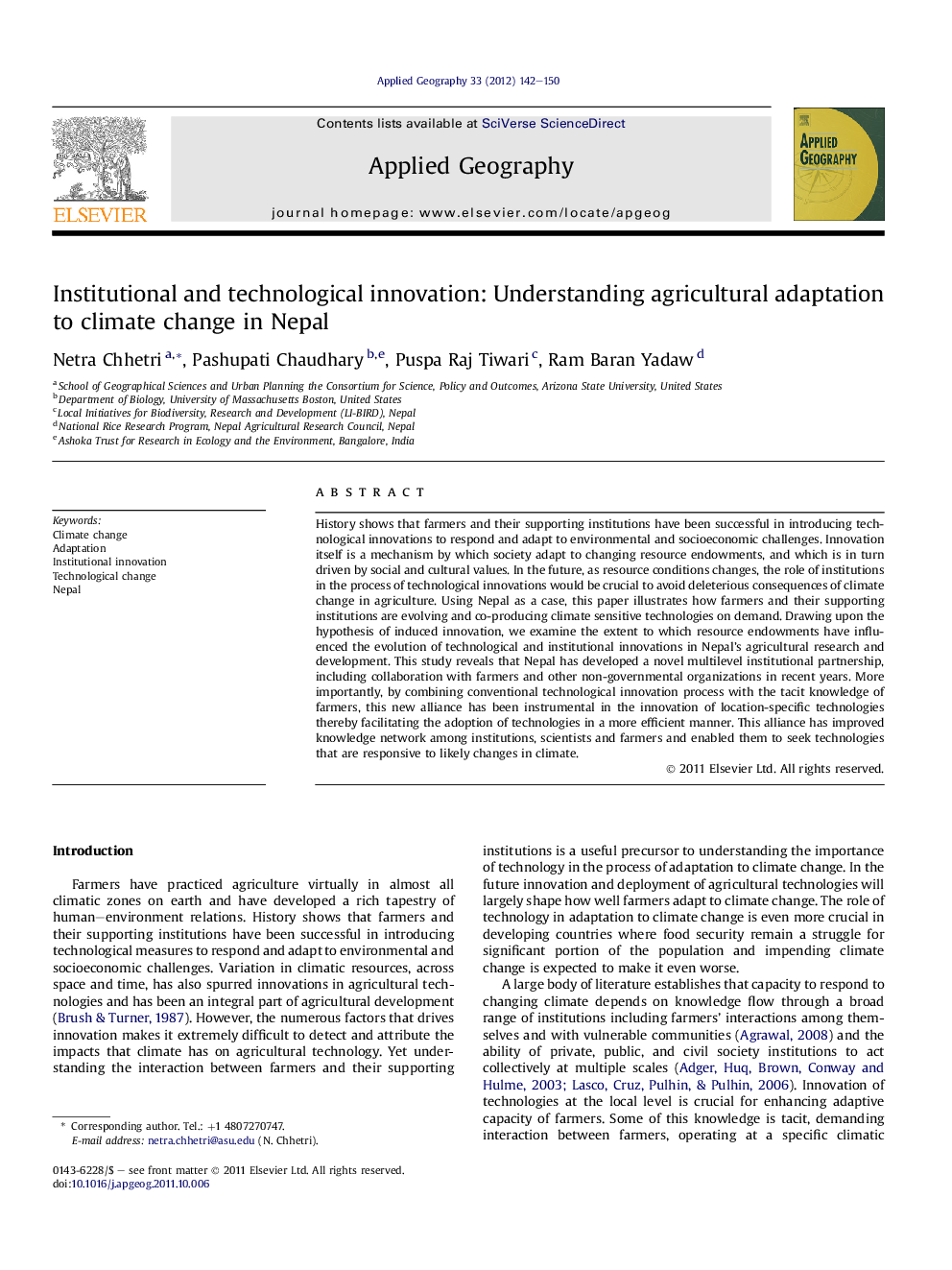| Article ID | Journal | Published Year | Pages | File Type |
|---|---|---|---|---|
| 83506 | Applied Geography | 2012 | 9 Pages |
History shows that farmers and their supporting institutions have been successful in introducing technological innovations to respond and adapt to environmental and socioeconomic challenges. Innovation itself is a mechanism by which society adapt to changing resource endowments, and which is in turn driven by social and cultural values. In the future, as resource conditions changes, the role of institutions in the process of technological innovations would be crucial to avoid deleterious consequences of climate change in agriculture. Using Nepal as a case, this paper illustrates how farmers and their supporting institutions are evolving and co-producing climate sensitive technologies on demand. Drawing upon the hypothesis of induced innovation, we examine the extent to which resource endowments have influenced the evolution of technological and institutional innovations in Nepal’s agricultural research and development. This study reveals that Nepal has developed a novel multilevel institutional partnership, including collaboration with farmers and other non-governmental organizations in recent years. More importantly, by combining conventional technological innovation process with the tacit knowledge of farmers, this new alliance has been instrumental in the innovation of location-specific technologies thereby facilitating the adoption of technologies in a more efficient manner. This alliance has improved knowledge network among institutions, scientists and farmers and enabled them to seek technologies that are responsive to likely changes in climate.
► Climate change adaptation involves new institutional and technological innovation. ► Nepal's research establishment has fostered novel institutional coalition with farmers and NGOs. ► This coalition, enhanced through PTD/PPB, has improved knowledge network among stakeholders. ► Technologies innovated through this processes are robust and likely to adapt to changing climate.
